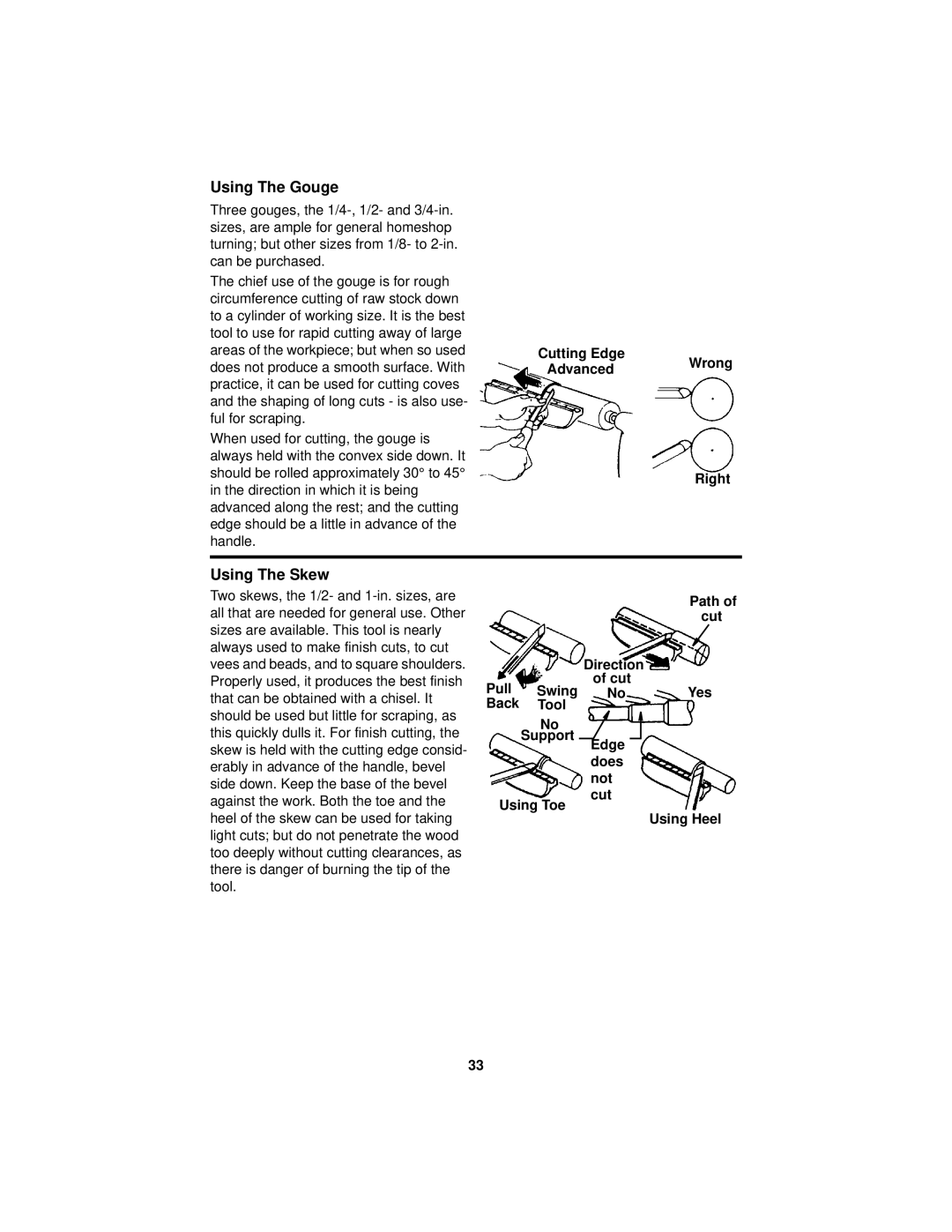
Using The Gouge
Three gouges, the
The chief use of the gouge is for rough circumference cutting of raw stock down to a cylinder of working size. It is the best tool to use for rapid cutting away of large areas of the workpiece; but when so used does not produce a smooth surface. With practice, it can be used for cutting coves and the shaping of long cuts - is also use- ful for scraping.
When used for cutting, the gouge is always held with the convex side down. It should be rolled approximately 30° to 45° in the direction in which it is being advanced along the rest; and the cutting edge should be a little in advance of the handle.
Cutting Edge
AdvancedWrong
Right
Using The Skew
Two skews, the 1/2- and
Path of cut
Direction of cut
Pull | Swing | No | Yes |
Back | Tool |
|
|
this quickly dulls it. For finish cutting, the skew is held with the cutting edge consid- erably in advance of the handle, bevel side down. Keep the base of the bevel against the work. Both the toe and the heel of the skew can be used for taking light cuts; but do not penetrate the wood too deeply without cutting clearances, as there is danger of burning the tip of the tool.
No
Support
Using Toe
Edge does not cut
Using Heel
33
